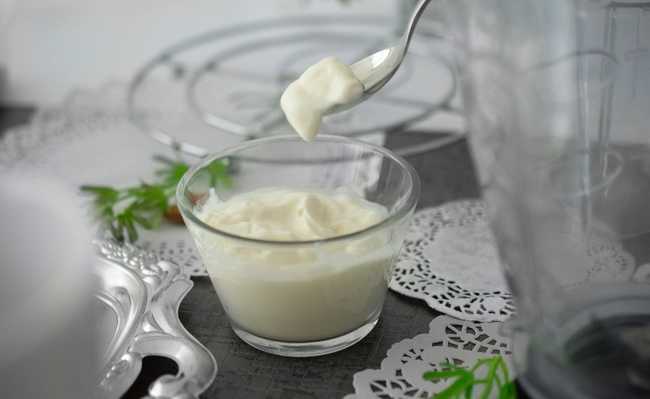Rosehip oil: what is it for?
Check out nine ways to use rosehip oil on your face and body

Edited and resized image of Dee @ Copper and Wild, available on Unsplash
What is rosehip oil?
Rosehip oil is also known as rosehip seed oil. It is made from the seeds and fruit of the scientific-named species. dog rose , being grown mainly in Chile. Despite being originally from Europe, the rosehip grows well in some countries in America, especially in the Andes, as it is a region with a cold climate.
Unlike rose oil, which is extracted from rose petals, rose hip oil is made by pressing the fruits and seeds of the plant.

Edited and resized image by Michal Hlaváč, is available on Unsplash
Valued since ancient times for its valuable health benefits, rosehip oil is rich in vitamins and fatty acids that nourish the skin. It also contains phenols with antiviral, antibacterial and antifungal properties. Rosehip oil is often used as a carrier oil for essential oils that are too intense to put directly on your skin.
Read on to learn more about how rosehip oil can benefit your skin and how to add it to your skin care routine.
1. Moisturizes and nourishes
Moisturizing is essential for soft, supple skin. Lack of hydration can be a problem during extreme weather conditions or premature skin aging.
Rosehip oil contains a variety of essential fatty acids, including linoleic and linolenic acid. Fatty acids help keep cell walls strong so they don't lose water.
The many fatty acids in rosehip oil make it an excellent choice for moisturizing dry and itchy skin. The skin also easily absorbs the oil, allowing its antioxidants to penetrate the deeper layers of the skin, fighting free radicals, which are responsible for damage to the skin.
2. Prevents premature skin aging
A study published by the NCBI scientific journal concluded that the use of rosehip powder offers several anti-aging properties, including the ability to keep the skin hydrated. The researchers found that participants who ingested rosehip powder showed remarkable improvements in skin hydration.
You can also receive these benefits by applying rosehip oil topically. Rosehip oil is a "dry" or non-greasy oil. This makes it a great natural moisturizer for all skin types.
3. Exfoliates and renews the skin
Natural exfoliation with rosehip oil leaves skin glowing and vibrant. This is because rosehip oil is rich in vitamins A and C.
Vitamin A, or retinol, promotes skin cell renewal. Vitamin C also helps with cell regeneration, increasing overall shine.
4. Increases collagen production
Collagen is the skin's building block. It is essential for the skin's elasticity and firmness, but the body reduces its natural collagen production as the body ages.
As already mentioned, rosehip oil is rich in vitamins A and C, which are necessary for collagen production. In addition, a study showed that it is able to inhibit the creation of MMP-1, an enzyme that breaks down collagen in the body.
Another study showed that participants who ingested rosehip powder had a noticeable increase in skin elasticity.
5. Reduces inflammation
Rosehip is rich in polyphenols and anthocyanins, which help reduce inflammation. It also contains vitamin E, an antioxidant known for its anti-inflammatory effects.
In this way, rosehip oil can help alleviate irritation resulting from:
- rosacea
- Psoriasis
- Eczema
- Dermatitis
6. Protects against sun damage
The cumulative damage resulting from lifetime exposure to sunlight plays an important role in premature aging. Exposure to UV rays can also interfere with the body's ability to produce collagen.
Rosehip oil contains antioxidants such as vitamins A, C and E. These vitamins synergistically combat visible sun damage. They can also help prevent photoaging.
Rosehip oil can be used to help reduce the negative effects of UV exposure.
- Oxybenzone: toxic compound is present in sunscreen
7. Reduces hyperpigmentation
Hyperpigmentation occurs when excess melanin forms dark patches on the skin. This can result from a number of factors, including:
- sun exposure
- Hormonal changes, such as in pregnancy or menopause
- Use of medications such as birth control pills and chemotherapy drugs
Rosehip oil is rich in vitamin A. Vitamin A is rich in nutritional compounds, including retinoids. Retinoids are known for their ability to reduce hyperpigmentation and other visible signs of aging with regular use.
Rosehip oil also contains lycopene and beta-carotene. According to a study, these compounds have skin-lightening properties, making them basic ingredients in many skin-lightening products.
8. Reduces scars and wrinkles
Rosehip oil is rich in fatty acids and antioxidants, essential compounds for the regeneration of skin tissues and cells. It is no wonder that it has long been used as a folk remedy for wound healing as well as the reduction of scars and wrinkles.
One study showed that rosehip oil showed a significant reduction in the appearance of wrinkles around the eyes, also known as crow's feet, after eight weeks of treatment. Participants in this study consumed the powder orally.
In another study, participants with post-surgical scarring treated the incision site twice daily with topical rosehip oil. After 12 weeks of use, the group that used rosehip oil showed significant improvements in scar color and inflammation when compared to the group that did not receive topical treatment.
9. Increases immunity
Rosehip oil is rich in antioxidants and polyunsaturated fatty acids, such as linoleic acid, which are essential to prevent the breakdown of the skin's cell membranes. Strong, healthy cells act as a barrier to prevent harmful bacteria from attacking the skin, which can lead to infections.
According to a study, rosehip oil promotes firmness and longevity of skin cells.
How to use rosehip oil
Rosehip oil is a "dry" oil that easily absorbs into the skin. While it is generally safe for all skin types, you should have an allergy test performed before first use. For that:
- Apply a small amount of rosehip oil to your forearm or wrist;
- Cover the treated area with a bandage or gauze;
- After 24 hours, check the area for signs of irritation;
- If the skin is itchy or inflamed, do not use rosehip oil (seek medical help if irritation persists);
- If the skin does not show signs of irritation, it is likely safe to use elsewhere.
After taking a patch test, you can apply rosehip oil up to twice a day. The oil can be used alone, or you can add a few drops to another carrier oil or your favorite moisturizer.
Rosehip oil can quickly turn rancid. To help prolong its shelf life, store it in a cool, dark place. You can also store it in the fridge.
Although it is a little more expensive, cold pressed organic rosehip oil is recommended for purity and best results.
Possible side effects and risks
Rosehip oil is safe for all skin types, but an allergic reaction is not uncommon. Before using rosehip oil for the first time, you should perform an allergy test.
Seek medical help if after use you present:
- red and itchy skin
- Itchy, watery eyes
- scratched throat
- Nausea
- vomiting
Anaphylaxis is possible in severe cases of allergic reaction. Seek immediate emergency medical attention if you begin to feel:
- difficulty breathing
- wheezing
- Swollen mouth, throat or face
- accelerated heartbeat
- Stomachache










